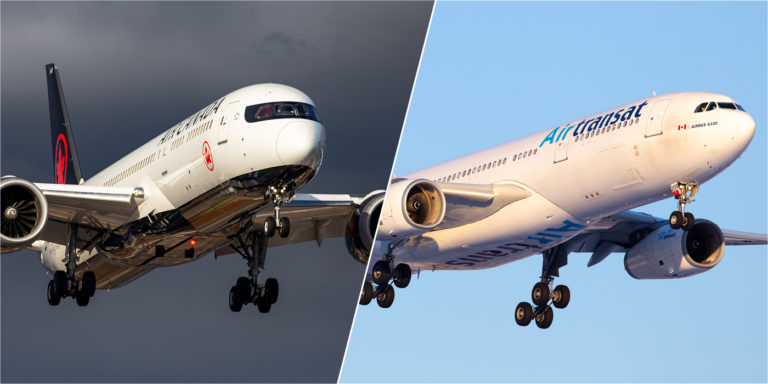Estimated reading time 3 minutes, 56 seconds.
On March 27, Canada’s Competition Bureau submitted its report opposing Air Canada’s proposed acquisition of Air Transat, citing “a substantial lessening or prevention of competition in the sale of air travel or vacation packages to Canadians” as its main contention with the transaction.

According to the bureau, eliminating the rivalry between two of Canada’s four biggest airlines would result in increased prices, less choice, decreases in service and a significant reduction in travel by Canadians on a variety of routes where their existing networks overlap.
As a direct response to the bureau’s finding, the Montreal Economic Institute (MEI) recently published a report, titled A Sound Competition Approach Supports Air Canada’s Acquisition of Air Transat, in favour of the proposed transaction, saying that Air Canada’s acquisition could help both airlines make it out of the current COVID-19 crisis in a favourable position.
“First of all, it is clear that, in the current circumstances, a buyer in a more solid position like Air Canada would increase the likelihood of Air Transat’s recovery after the crisis and ensure its sustainability and the preservation of the maximum possible number of jobs,” said Gaël Campan, senior economist at MEI and author of the publication. “It would be irresponsible for the minister to refuse to allow this transaction, considering the situation the airline industry finds itself in, and such a refusal would end up being of no benefit at all to travellers either.”
When it first released its findings, the Competition Bureau recognized that its report was based off information collected prior to the COVID-19 outbreak, and that the impact the pandemic would have on the Canadian airline industry would be “significant in the near term”.
“The ultimate impact of these events may be relevant to the bureau’s views on the proposed transaction but it is impossible to know the full extent and duration of any impact at this time,” the bureau said in a statement.
According to MEI’s publication, the airline industry has transformed itself over the past 40 years into an industry that uses certain airports as hubs from which one or two airlines account for a large share of flights.
“Unfortunately, the Competition Bureau relies on a static model of competition that does not take into account this natural evolution of the industry,” explained Campan.
According to Campan, there was fierce competition following the deregulation of the airline industry in the late 70s which few companies were able to survive — compounded by unpredictable factors affecting prices and the fact that customers can now compare fares thanks to online aggregators.
“It is this competitive pressure and the constrained profitability of the industry that required airline companies to join forces, through mergers, acquisitions, or alliances, in order to feed the hubs and optimize seat occupation. We cannot disregard this context when seriously analyzing competition in the airline industry,” Campan said in a statement. “Even after the acquisition of Air Transat, Air Canada remains a company of modest size compared to the world leaders and to the biggest hubs.
“However, it would have a better chance to compete on equal footing in the global arena, to grow and to prosper, all to the benefit of its employees, its shareholders, and ultimately its passengers,” concluded Campan.
The Montreal Economic Institute (MEI) is the same organization that praised the Airbus-Bombardier Love-In that lead to the unfortunate giveaway of the CSeries after a $3B bailout by Québec to heavily subsidized Airbus.
Canadians should not be deprived from AIR TRANSAT.
More competition is better for the public. Oligopoly always leads for worse conditions for the consumer.
I fully support the Canada’s Competition Bureau position.
The Competition Tribunal’s report has no legal standing. Any decision will come via Minister Garneau. That said, the question to be asked, in light of the present situation, is why Air Canada would want to proceed with the acquisition?
Paying the breakup fee would far cheaper than consummating the deal. Should Air Transat not survive the current crisis, any concern the Tribunal has will be moot!
In the near term, expect any decision to be kicked down the road, by Air Canada. Conversely, it can’t happen soon enough for Air Transat and Premier Legault. This report, by the M.E.I., is all part of the mating dance!
Air Canada is in no position to manage any additional capacity from a merger with Transat. 85 percent of its capacity has been reduced and 16000 employees and 1500 management retired or
laid off or under CEWS. If the Government wants to help Transat with a bail out then they should but not as part of a merged
company with Air Canada. The survival of Air Canada should be of paramount importance and a merger during this pandemic would be disastrous.